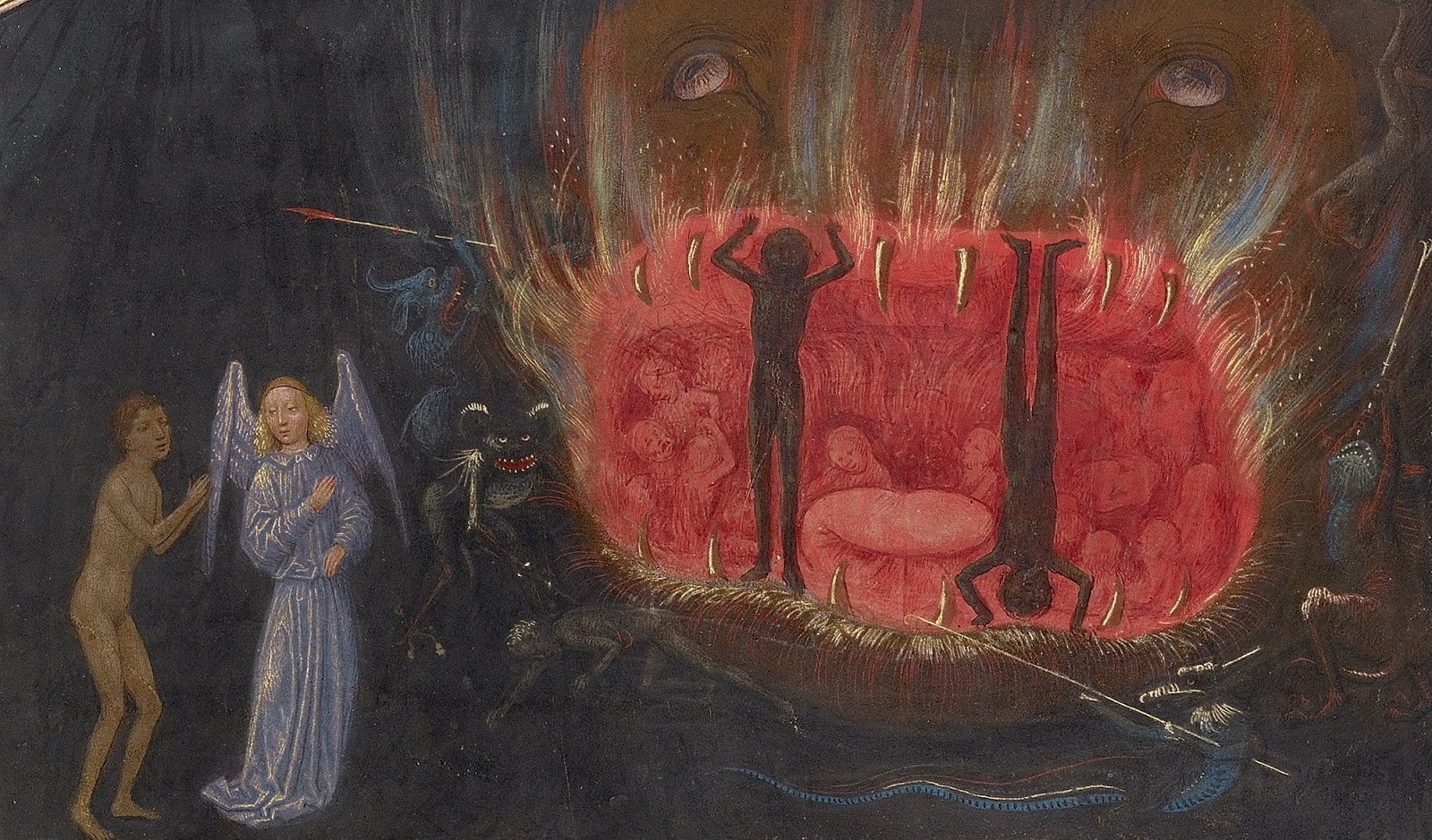
Heaven and Hell – the final frontiers. Concepts well-known to Christianity but places that remain a mystery to this day. A mystery that sparked the imagination of curious people from antiquity to modern times and even led to the creation of other fantastic places that we can call otherworlds.
In this course we will discuss the importance and prevalence of medieval vision literature for a medieval audience and our canon of medieval literature. We will engage a selection of Middle English visions (e.g. Geoffrey Chaucer’s dream visions (e.g. The Book of the Duchess or The House of Fame), the allegorical dream vision Pearl, and the afterlife vision The Vision of Tundale) through narratological analyses, close-reading in combination with linguistic analyses (e.g. cognitive linguistics). We will analyse their topics, discuss their structures, their way of communicating both visions and doctrine, and their usage of narrative techniques to get a better understanding of their literary value, their fascinating mixture of facts and fiction, and the ideas they want to transmit – ideas that resonate to this day. Furthermore, we will question their place in the wider cultural context of medieval Britain. We will even attempt to trace their influence in modern imaginations. An additional focus will be the usability of postclassical narratology and the theory of fictionality for medieval literature as well as linguistic theories.
No previous knowledge of Middle English is required. However, students should be prepared and willing to engage with the Middle English text. There will be a ‘crash course’ of Middle English at the beginning of the course and we will constantly work on our understanding of Middle English through reading and analysing (and maybe even translating) Middle English. Selected translations will be provided.
All material will be made available via Moodle.
Assessment/requirements: active participation in class is expected. This means a thorough reading of assigned texts before class and engagement with assignments that have to be handed in throughout the course.
Übung: completion of given assignments (preparation for scientific poster and creative tasks) and handing in of portfolio including the poster in the penultimate week of lectures with a gallery walk in the last week; Seminar: completion of given assignments (preparation for a term paper and creative tasks) and handing in of a term paper (~12 pages) by 1st September 2025.
- Kursleiter/in: Sebastian Kleinschmidt
